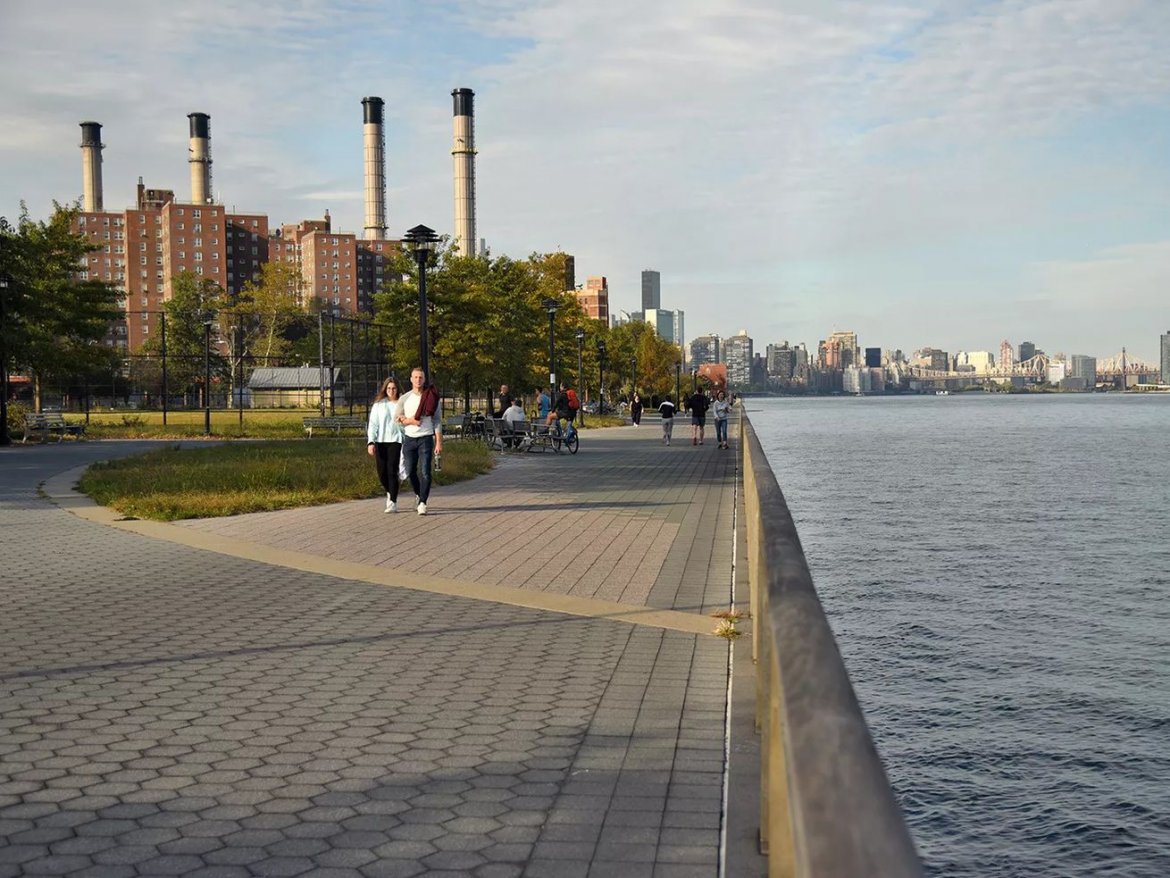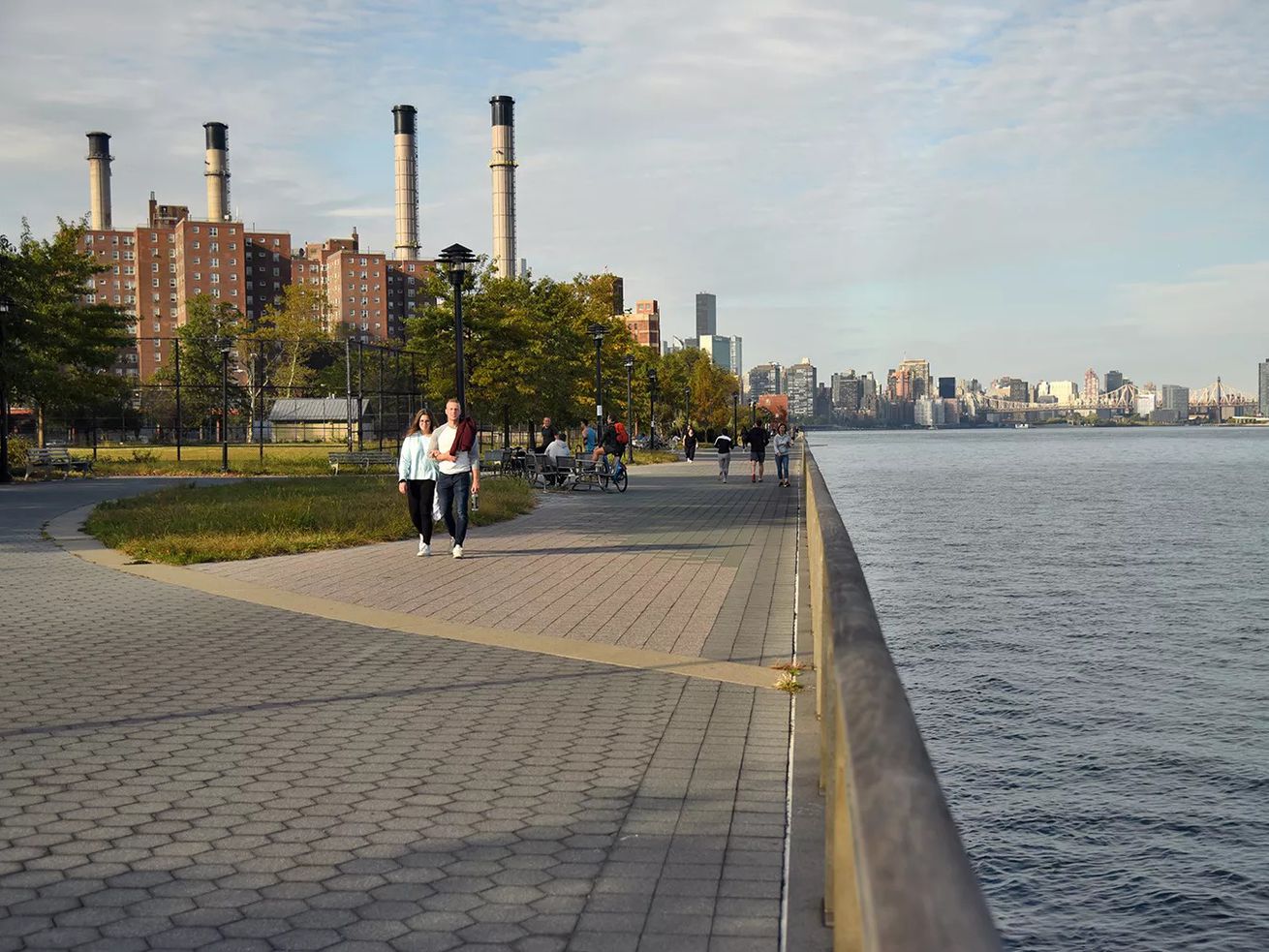
East Side flood protection plan passes City Council, but legal challenge looms

Local opponents plan to sue against the city’s plan in the coming weeks
A $1.45 billion effort to transform Manhattan’s east side with flood protections overwhelmingly passed the City Council Thursday, but local opponents are preparing a lawsuit against the city’s plan.
The East Side Coastal Resiliency (ESCR) Project will reconstruct a 2.4-mile stretch of waterfront including East River Park, which would be razed and rebuilt up to 10 feet higher. An earlier version of the plan would have closed the park completely during more than three years of work, but an eleventh hour switch to a phased construction plan ensures that nearly half of the park will remain open throughout the project.
“Today we have a phased, safe, and timely ESCR construction plan,” said Lower East Side Councilmember Carlina Rivera during Thursday’s vote. “We have to act fast to protect the east side, and ESCR will not just ensure that protection, it’s going to provide a historic investment that will help our communities reverse decades of environmental injustice.”
The trio of lawmaker who represent the affected Manhattan neighborhoods—Councilmembers Rivera, Margaret Chin, and Keith Powers—negotiated a package of commitments and community investments from the de Blasio administration to mollify locals’ misgivings about the plan. Many of critics concerns stem from an abrupt overhaul to the plan in 2018, which followed four years of talks between locals and officials on a plan that would have built flood barriers on the western side of East River Park to keep the green space intact.
Now, a coalition of community groups plan to sue the city over the plan, charging that the city misstepped by not seeking “parkland alienation” from the state legislature in the form of legislation that would allow East River Park to temporarily become a construction zone.
“It’s pretty clear to me that City Council didn’t have the power to approve this without the legislative say-so from Albany,” said Arthur Schwartz, the same lawyer behind multiple legal challenges that temporarily halted the 14th Street busway.
Schwartz is representing a handful of Lower East Side groups including East River Park Action, which has staunchly opposed the plan, and says he aims to file the lawsuit in Manhattan Supreme Court by December. The challenge would seek to void Thursday’s approval and force the city to go through the state Senate and Assembly.
“It matters to have park space for tens of thousands of people,” said Schwartz, who is skeptical about the city’s timeline. “They say five years but you know it’s not going to take five years. Almost a generation of kids will grow up without park space.”
State lawmakers actually warned the city that not seeking park alienation could leave the effort open to legal challenges. At an October Council hearing, State Senator Brian Kavanagh, testifying on behalf of a cadre of local state legislators, spelled out his concerns.
“It is our belief that a failure by the city to seek park alienation legislation leaves the city vulnerable to a lawsuit that could delay implementation of flood protections,” he said.
City officials have repeatedly stressed the importance of swiftly enacting protections for this vulnerable stretch of Manhattan. And time is running out for the city to spend $335 million it received from the Department of Housing and Urban Development for the project. The deadline is September 2022. In a statement Thursday evening, Mayor Bill de Blasio touted the importance of the plan’s Council passage and emphasized the need to press on.
“With the rising prevalence of coastal storms in the era of climate change, the passage of the East Side Coastal Resiliency project takes a critical step forward in protecting 110,000 New Yorkers from dangers this city knows all too well,” said de Blasio.
Officials expect a final project design to head to the Public Design Commission for approval in December. The Department of Design and Construction is set to break ground in March 2020, and says flood protections will be operational before hurricane season in 2023.
The full project is slated for completion by the end of 2023. It is unclear if the forthcoming lawsuit will stall the project’s timeline.
Love where you live
Be Heard at Go Home NY
Be heard! Leave your apartment, condo, and coop building reviews at Go Home NY! Know a building's managers are awful? Have the inside line on a perfect building? Anything in between? Express your voice and be heard. Leave a review at Go Home NY.


